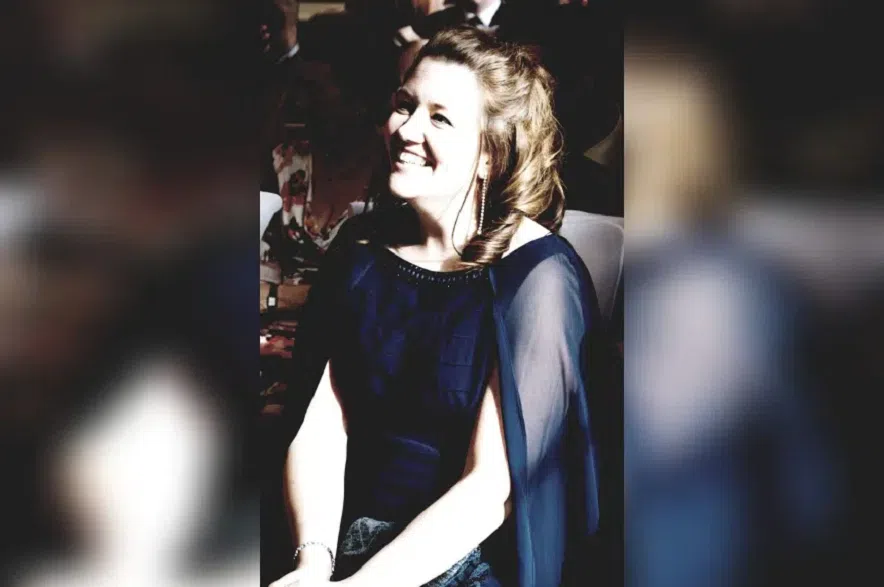By Angela Brown
A man charged in the death of his wife, Cindy MacKay, was sentenced to life in prison in Battleford’s Court of King’s Bench on Monday.
Michael MacKay, 41, was charged with first-degree murder in the death of his wife in the Meota area. He pleaded guilty to the lesser charge of second-degree murder in the case.
Justice M.L. Dovell accepted a joint submission from the Crown and defence recommending life imprisonment with no chance of parole for at least 10 years. MacKay was also ordered to provide a DNA sample and received a firearms prohibition.
Cindy MacKay, 38, was transported to hospital in medical distress on Feb. 7, 2020 and died five days later. Her cause of death was found to be strychnine poisoning.
According to the agreed statement read in court by Crown prosecutor Oryn Holm, on the morning of Feb. 7, 2020 at their family farm near Meota, Michael gave Cindy a drink containing the toxic pesticide strychnine in an amount he knew would be lethal.
Shortly after consuming the drink, she went into medical distress. Michael called 911 and told operators Cindy was not feeling well and requested assistance. One of their three young daughters was in the home at the time.
When the ambulance arrived, Cindy was taken to the Battlefords Union Hospital. She was later transferred to Royal University Hospital in Saskatoon. After her condition continued to deteriorate, Cindy was removed from life support and died shortly after.
On Feb. 10, 2020, while Cindy was still alive, hospital staff in Saskatoon contacted the RCMP, as they considered the case suspicious.
In two statements to the police, MacKay denied giving Cindy strychnine, and speculated it was instead perhaps a suicide on her part.
According to the statement of facts, Michael was having a casual affair.
On Feb. 6, 2020, a day before he poisoned his wife, Michael texted the woman he was involved with, saying: “Goodbye will likely be in the next few days.”
“This is the most tragic of cases,” Dovell told the court.
Outside the courtroom, Cindy MacKay’s family spoke about finding justice after Cindy’s death.
Holm told reporters there was a lack of direct evidence in the case.
“It was a truly circumstantial case,” he said. “It’s one where sometimes we will have people who see things or can tell us things that are more literally direct. This one was purely circumstantial. No one had seen him do the action. He had never confided in anyone he had done the action. There was nothing in his devices that there was any type of plan. It was a truly circumstantial case.”
Holm said there were a series of circumstances that were suspicious, and when added together “gave us the Crown theory that led to charges.”
He noted that circumstantial evidence can make a trial very risky.
Holm went on to say it is quite uncommon to see cases of poisoning by strychnine.
“I’ve been a prosecutor for almost 10 years now, and I’ve never seen it,” he said.
“Strychnine poisoning is extremely rare. If the trial had run, we would have heard some evidence from the toxicologist. While these things do happen, you are talking one or two a year. So the fact that that was the poison used in this case does make it extremely rare.”








